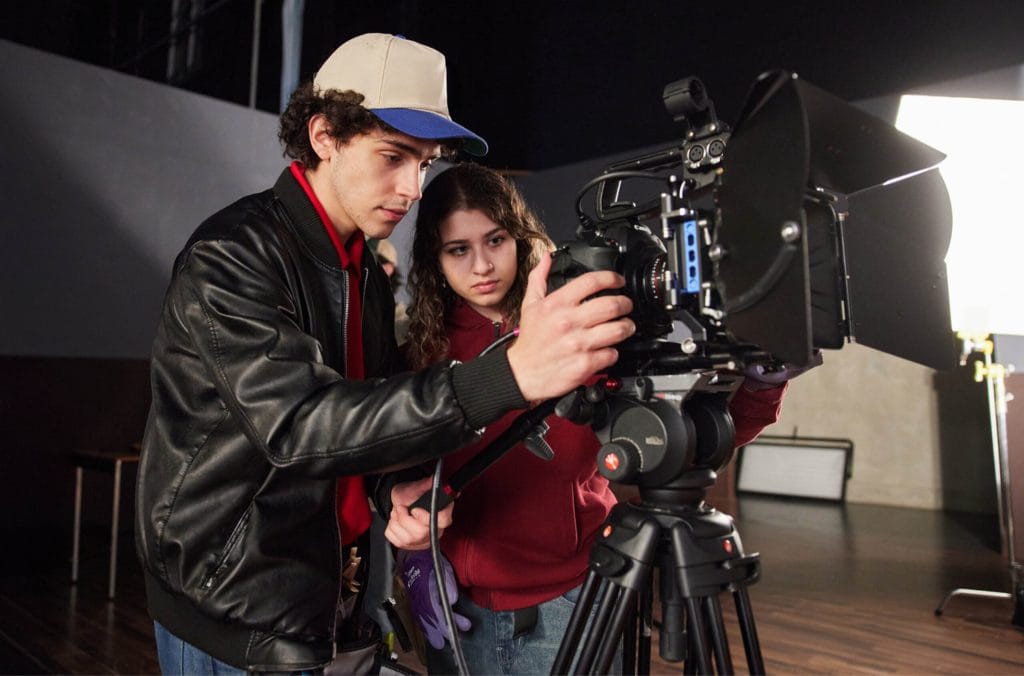
Just months after winning his 2025 Golden Raspberry award for Worst Supporting Actor in four films including the biopic Reaganactor Jon Voight, 87, lobbied U.S. President Donald Trump to support American filmmaking with federal tax incentives, co-production treaties and subsidies.
Voight, one of Trump’s three special Hollywood ambassadors (with 70-year-old actor-director-producer Mel Gibson and 79-year-old action flick veteran Sylvester Stallone), spent a weekend carefully explaining a detailed proposal to Trump at his Mar-a-Lago enclave in early May. But the president took a more Trumpian approach to making movies great again — announcing a 100 per cent tariff on all foreign-produced films shown in America.
The news caused a media flurry in Canada, where foreign film and TV production, most of it American, was valued at nearly $8 billion in 2023. (Canadian production, by contrast, was valued at just over $4 billion.) And although it’s unclear whether, or how, the tariffs would actually be applied, our film schools are still contemplating the threat.
“We know nothing about how it would work beyond Trump’s original statement, which was as nonsensical as everything he says,” remarks Sam Fisher, chair of the film division in the division of media arts at NSCAD University. “Until we know what he defines as a foreign film, we won’t have a clue how this might or might not impact anyone.”
Michael Thoma, Chair of Capilano University’s School of Motion Picture Arts (and a veteran actor and writer on B.C.’s American production scene) draws a link between the health of the industry and employment prospects for his graduates. “The main problem is that the tariff’s effect on production is unclear,” he says. “Will people take their foot off the gas? The industry may take a wait-and-see approach in production. And there could be the same wait-and-see attitude with our students.”
But for now, Dr. Thoma’s foot is firmly on his school’s gas pedal. Enrolment is at capacity, and this summer’s four-week intensive programs (ultra-low budget filmmaking, grip skills and lighting) are oversubscribed. Plans are in the works for more summer programs and master workshops. “Our school is very much guided by industry,” he says. And for now, there is work to be found.
At Toronto Metropolitan University, Karen Harnisch, director of the undergraduate film program, tells her students that “all is not lost,” Having personally survived the 2008 financial crisis, multiple industry strikes, the pandemic shutdown and post-pandemic inflation she is positive about her graduates’ futures, telling them “to stay creative and be flexible.” And she is quick to point out that Canadian film crews don’t just work for American productions.
“Collaborating with the U.S. is not the only way we make film. Rather than just servicing American productions, we can blur hard content lines with co-productions,” she says. “Our graduates become English-language filmmakers but those who end up on American sets are the minority. More of them work on Canadian productions and international co-productions.” TMU’s film MFA program, with about 100 students in each of its four years, continues to expand enrollment. This year there were 10 applicants for every first-year slot.
In Montreal, Martin Lefebvre, Chair of Concordia University’s Mel Hoppenheim School of Cinema (named for the Quebec studio entrepreneur known as Mr. Hollywood North), feels confident that Quebec’s film industry — and his graduates — can withstand President Trump’s threats.
“Quebec has a very healthy cinema. There is nothing equivalent to it. Other provinces are more reliant on American shoots. We have (graduates) working in the American stream, but the majority are in the Quebec film industry.”
In other words, movie crews may stop trying to make Vieux Montreal look like Paris, and exports of aluminum and maple syrup may decline, but there will always be another Starbuck shooting on location in Montreal’s Mile End.
The majority of Concordia students are enrolled in the film studies program (focused on criticism and social/historical analysis) rather than the two smaller, hands-on filmmaking streams: animation (auteur rather than industrial) and film production (live action and documentary).
“I honestly don’t think it will impact us much,” concludes Dr. Lefebvre. “People may be affected if it were to pass, but I don’t think it will.”
Could Prime Minister Mark Carney somehow find a way to turn President Trump’s aggression to Canada’s advantage and entice audiences here to watch more homegrown cinema? Dr. Lefebvre laughs, acknowledging the power of Netflix and Prime, but… “If this benefits the viewing of Quebec films, all the better.”







